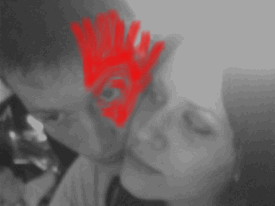Find relief from orgasm headache...
If there's any such thing as bad timing, orgasm headache is IT. Orgasm headache, also known as primary headache associated with sexual activity,orgasmic cephalalgia, orgasmic thunderclap, orgasmic migraine, coital headaches or sex headaches, can strike anyone but tend to mostly hit men (by a ratio of 4 to 1). They don't usually lead to permanent damage, but they can be a sign of some very serious conditions.
Types of sex headaches

These types of headaches come in different varieties. There's the dull pain that seems to come from the head and neck contractions during sexual activity. There's the headache that seems to occur during a change of posture. And then there's the intense orgasmic migraine, pain that generally hits fairly suddenly at the time of orgasm. This last example is the most common of the sex headaches.
The pain usually doesn't last very long, though in some cases it may last for several hours. Researchers believe that many of these headaches may be triggered by the exertion of sexual activity. See this article from the National Headache Foundation about orgasm headache and exertion headaches.
Am I in danger?
The same advice applies here with for headache. If it's getting worse, suddenly different, repeating, or new to you, then see a doctor as soon as possible - in other words, head to the emergency room. Orgasm headaches may not be doing serious damage (at least, not as serious as it may feel!), but occasionally they can be a sign of something serious or even life threatening.
Your initial checkup will likely include a CT scan and a spinal tap, which should be done as soon as possible after the headache.
On top of the above issues, look for the following symptoms: stiff neck, vomiting, irregular breathing, or lack of coordination.
As soon as possible, see your doctor. Be sure to tell her clearly what symptoms you're dealing with, and under what circumstances. Doctors need as much information as possible to catch problems that may quickly become much worse.
Although rare, a sex headache could be a sign of bleeding in the brain, stroke, tumour, or aneurysm. Dr Brian D Loftus tells us that it could be a warning sign of something worse to come, so catching it early is very important.
How can I stop orgasm headache?
 |
First, don't give up. Often these headaches will stop happening in time. Even if they don't, there are various ways to deal with them.
Talk to your doctor and discuss your family history. Often, you'll find that a history of migraine may give you a clue about the cause.
Randolph Warren Evans, MD (Clinical Associate Professor in the Department of Neurology at the University of Texas at Houston Medical School and Clinical Associate Professor in the Department of Family and Community Medicine at Baylor College of Medicine) writes: [Sexual] Headaches may be prevented in some patients by weight loss, an exercise program, a more passive role during intercourse, variation in posture, limitation of additional sexual activity on the same day, and medications.
If you already have abortive medication, you can try taking it for an orgasm headache, or even before you get one, as long as you don't go beyond the dosage recommended by your doctor.
Common medications that may be tried medically include
naproxen (Aleve), indomethacin, propranolol, verapamil, and diltiazem. You can
also try other NSAIDs that are often available over the counter, such as
ibuprofen. Triptan medications have also been tried to lessen the pain of orgasm headache.
Try taking a 2 week break. You might also try using some relaxation techniques. It's easy to let one or two orgasm headaches have a bigger grip on you than they should.
If you want to keep up to date with headache information, why not sign up for our free newsletter, HeadWay?
References: Migraine and Other Headaches by Dr. William B. Young and Dr. Stephen D. Silberstein (2004); Etiology of Coital Headaches by Dr. Randolph Warren Evans (2001); The Migraine Brain by Dr. Carolyn Berstein and Elain MacArdle (2008); Exertional Headaches by the National Headache Foundation; Migraines for Dummies by Diane Stafford and Dr. Jennifer Shoquist (2003); The International Classification of Headache Disorders 2nd Edition by the Headache Classification Subcommittee of the International Headache Society (2003); Triptans in orgasmic headache. A. Frese et al (2006)